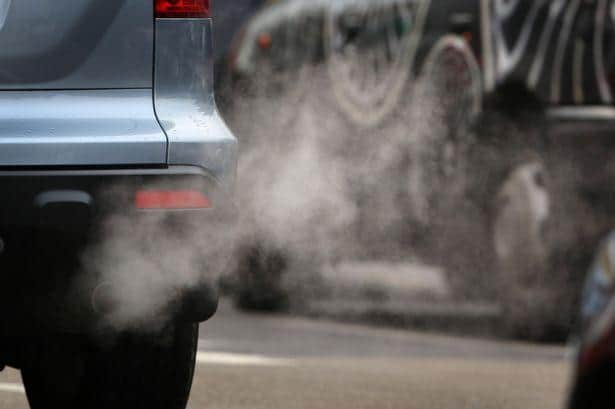Air pollution in Doncaster close to breaking health limit
and live on Freeview channel 276
Health campaigners say "toxic" air quality in the UK is a national emergency and the Government must impose stricter limits on fine particles in the air (PM2.5), which come mainly from the burning of oil, gas and diesel.
The calls have been heightened after a coroner, while ruling that air pollution was a cause of the death of a nine-year-old girl in London, said there was "no safe level" of PM2.5, adding WHO guidelines should be seen "as minimum requirements".
Advertisement
Hide AdAdvertisement
Hide AdFigures from the Department for Environment Food and Rural Affairs show the average concentration of PM2.5 pollution particles in Doncaster was 9.4 micrograms per cubic metre in 2019 – below the UK limit of 25, but close to the WHO guideline limit of 10.


That was an increase from 8.5 micrograms in 2018.
Across Yorkshire as a whole, the level of PM2.5 was at 8.9 in 2019, and 8.2 in 2018.
Separate figures published by the NHS show an estimated five per cent of deaths among people aged 30 and over in Doncaster were associated with long-term exposure to PM2.5, up from 4.6 per cent the year before.
The British Heart Foundation, which is campaigning for stricter limits on PM2.5 as part of the Government's Environment Bill which returns to Parliament this year, says the country faces “a public health emergency”.
Advertisement
Hide AdAdvertisement
Hide AdJohn Maingay, director of policy and influencing at the charity, said: "Our toxic air is a public health emergency, and now is the time to take robust action to support everyone’s health as we look to recover from the pandemic."
He added: “We are pleased that the Environment Bill, which will set more stringent air quality limits, will soon be returning to complete its passage through Parliament.
"However, this must go further and ensure WHO limits are adopted into law, and met by 2030.
“Stricter, health-based air quality guidelines are urgently needed to protect the health of the nation and clean up toxic air for good.”
Advertisement
Hide AdAdvertisement
Hide AdThe dangers of air pollution were further highlighted last month when nine-year-old Ella Adoo-Kissi-Debrah became the first person in the UK to have air pollution listed as the cause of death on their death certificate.
Coroner Phillip Barlow, who found she had been exposed to high levels of PM2.5 from traffic, said the Government should reduce its limits for the particulate matter pollution to bring them in line with WHO guidelines.
In his report, Mr Barlow said: "Delay in reducing the levels of atmospheric air pollution is the cause of avoidable deaths."
PM2.5 are tiny particles, measuring about three per cent of the diameter of a human air, which can lodge in the lungs and even pass into bloodstream, potentially causing damage to blood vessels and organs.
Advertisement
Hide AdAdvertisement
Hide AdThey come mostly from traffic fumes, but also through industrial emissions, wood burners and livestock manure. A small proportion come from natural sources in the form of dust or sea salt particles.
Levels of the PM2.5 particles have fallen in England since 2011, when national records began, from 12.1 micrograms per cubic metre to 9.6 in 2019.
In Doncaster, the reading fell from 2011, when it was 11.9.
